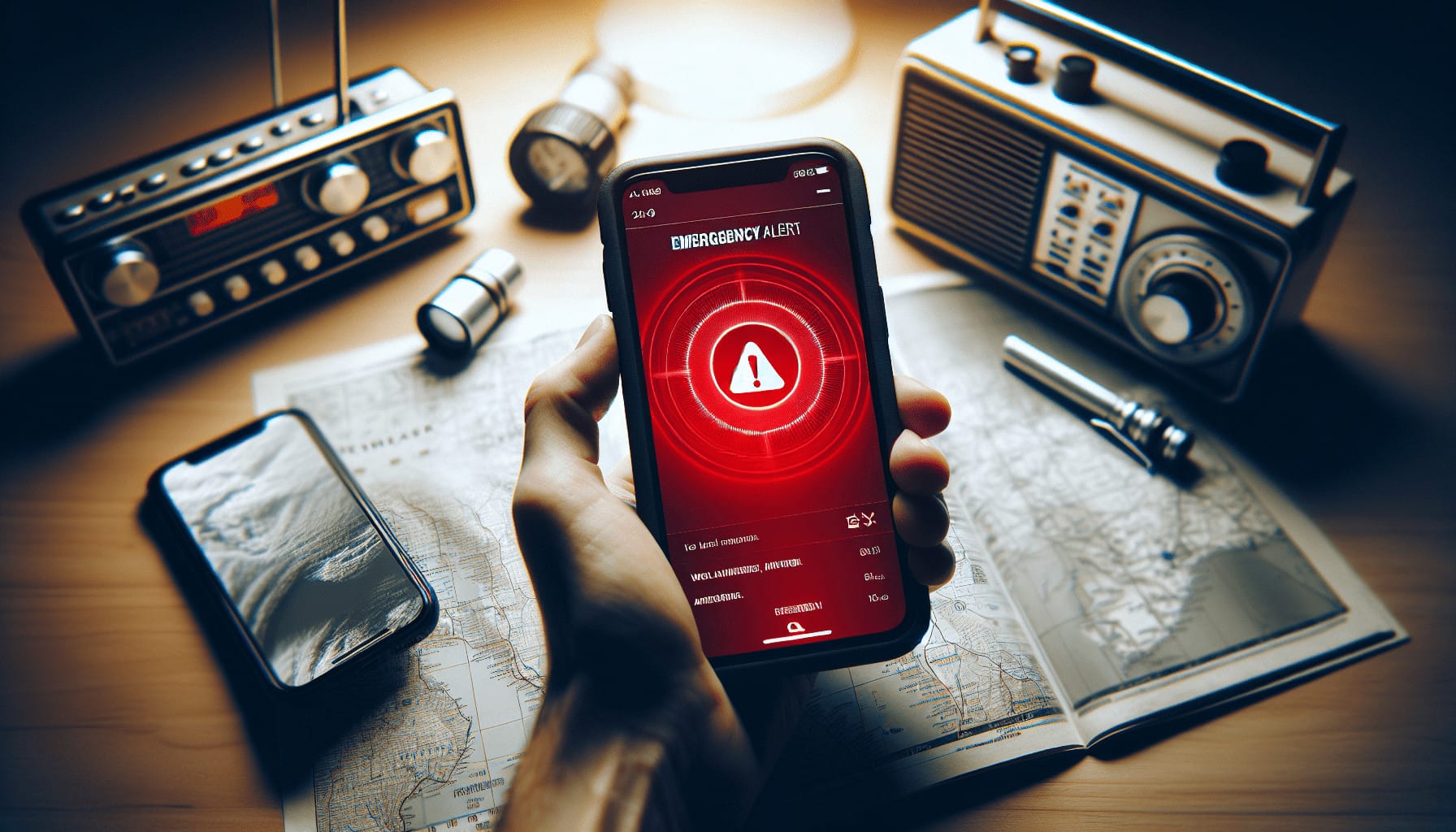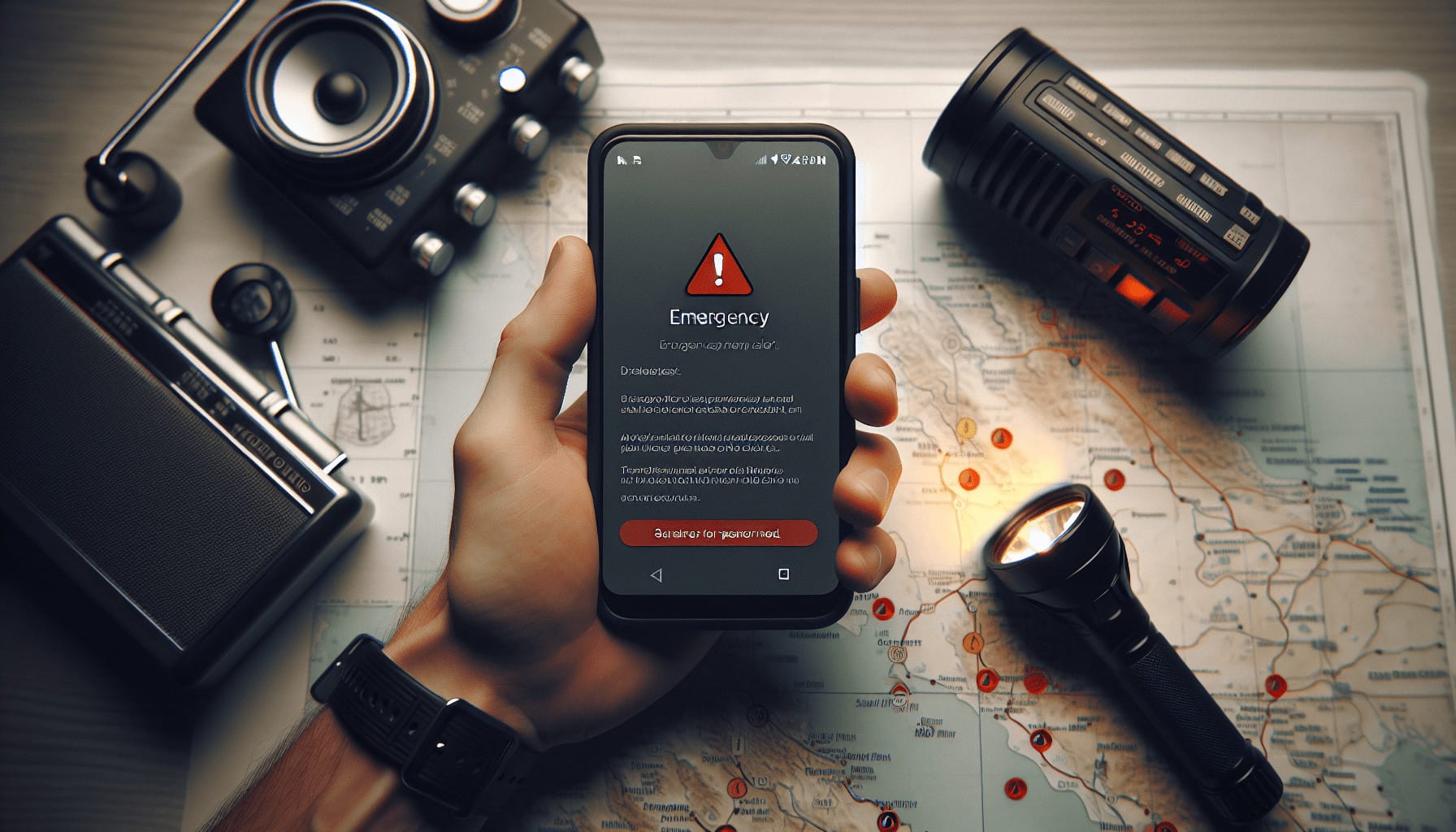Have you ever found yourself in a situation where you’re not quite sure what’s happening during an emergency? It’s easy to feel overwhelmed when things get chaotic, but having a plan to stay informed can make all the difference. Let’s talk about how you can make sure you’re getting the information you need when things get tough.
Understanding the Importance of Staying Informed
Being informed during an emergency is crucial. Whether it’s a natural disaster, a public health crisis, or any other unforeseen event, having the right information can help you make the best decisions for you and your loved ones. Informed decisions can mean the difference between safety and danger, and it all starts with staying updated.
Why Information is Key
Knowing what’s happening in real-time allows you to assess risks, prioritize actions, and seek necessary help. Information empowers you to protect yourself and others, providing peace of mind amidst uncertainty. You won’t have to rely solely on instinct when you have trusted sources guiding your next steps.
Sources of Information
You might wonder where you should be looking when seeking accurate and timely information. It’s essential to have a variety of sources since no single outlet is perfect. Let’s look at some reliable options.
Traditional Media
Newspapers, radio, and television have been go-to sources for breaking news for decades. They often provide continuous updates during large-scale emergencies. However, it’s crucial to remember that traditional media might not always have the fastest updates.
Online News Platforms
Websites and apps from reputable news organizations offer real-time updates and articles. They can be a bit quicker to update than traditional media. Just be sure to stick with well-known, credible sources to avoid misinformation.
Social Media
Platforms like Twitter, Facebook, and Instagram can be incredibly helpful during emergencies, but they also require a critical eye. Use them to follow official accounts for government agencies, emergency services, and reputable news outlets. Be cautious of rumors and unverified information circulating on these platforms.
Public Alerts and Notifications
Many regions offer public alert systems that you can sign up for to receive notifications directly to your phone or email. These systems provide vital updates from governmental bodies or emergency services, designed to keep you informed as quickly as possible.

Setting Up Your Own Communication Plan
Knowing where to look for information is only half the battle. You should also have a personal plan for staying informed and connected.
Create a Communication List
This is a list of contacts you may need to reach out to during an emergency. Include friends, family, neighbors, and any relevant emergency services. Update this list periodically, and keep it somewhere accessible.
Establish Communication Channels
Determine which communication methods work best for your needs. This could include text messaging, email, phone calls, or even social media. Ensure everyone on your contact list knows how to reach you, and vice versa.
Utilize Group Messaging
Apps like WhatsApp or Signal allow for group messaging, which can be incredibly useful for keeping everyone in the loop. Create groups for your family or community to share information quickly and efficiently.
Preparing and Practicing Ahead of Time
Don’t wait for an emergency to start putting your plan into action. The more prepared you are, the smoother things will go.
Practice Drills and Scenarios
Run through different emergency scenarios with those in your household. This way, everyone knows their role and responsibilities. It sounds a little tedious, but practicing these scenarios helps you react instinctively when real emergencies occur.
Have an Emergency Kit
Keep a readily available kit with supplies you’ll need, like water, non-perishable food, a flashlight, first-aid supplies, and a radio. Make sure everyone knows where it is, and that you’re frequently checking expiration dates on supplies.
Ensure Power and Internet Access
Keeping devices charged and having a plan for backup power sources can keep you connected. Consider having portable chargers on hand and a plan for where to go if you lose power or cannot access the internet.

Dealing with Information Overload
In emergencies, it’s easy to become overwhelmed by the sheer volume of incoming information. Managing this effectively helps you focus on what truly matters.
Prioritize Sources
Identify the most critical sources of information and prioritize checking those first. These typically include local government updates and alerts. Limit the need to constantly check multiple platforms by consolidating reliable sources.
Set Information Checkpoints
Avoid continually checking for updates to reduce anxiety. Instead, create set times throughout the day when you’ll catch up. This approach helps manage stress and keeps you focused on other important tasks.
Practice Digital Self-Care
Balancing information needs with self-care is important. If social media or constant news alerts become too distressing, take breaks. Staying informed doesn’t mean sacrificing your mental well-being.
Staying Safe While Staying Informed
Safety should be at the forefront of your strategy for staying informed.
Avoiding Misinformation
Misinformation can spread quickly. Always cross-reference information with multiple reliable sources before taking action. Verify any updates with trusted official announcements to ensure you’re basing decisions on accurate data.
Educate Yourself on Reliable Sources
Before an emergency happens, take time to familiarize yourself with which sources are trustworthy and have a track record of reliability. Research government, local news, and global news platforms ahead of time.
Share Verified Information
You can help others by sharing accurate updates with your community. Only pass along information you’ve verified with trusted sources. This reduces the risk of spreading panic or misinformation.
The Role of Community in Staying Informed
You’re not alone during an emergency. Communities can offer invaluable support and knowledge sharing.
Engage with Community Networks
Get involved with local community groups that might offer more immediate situational updates. Neighbors often share pertinent information, and community networks bolster collective resources during emergencies.
Building Local Support Systems
Create or join community preparedness teams or neighborhood groups. When everyone is prepared and aware, it benefits the entire community. Consider hosting meetings to educate members on emergency preparedness and establish a system for alerting each other.
Adapting to Changing Situations
Emergencies can be unpredictable and dynamic. Staying flexible is essential.
Be Open to New Information
As events unfold, information will evolve. Stay adaptable and be ready to adjust your plans as new data becomes available. Openness is crucial to making informed, timely decisions.
Continuous Learning
After an emergency, review what worked and what didn’t in your information plan. This helps you improve and better prepare for future situations.
Foster a Problem-Solving Mindset
Approach challenges with a solutions-based attitude. This mindset helps you remain calm and focused during crises, allowing you to process and respond to information effectively.
Utilizing Technology in Emergencies
Technology can be a game-changer in remaining informed during emergencies. Let’s explore tools and platforms that can aid you in staying up-to-date.
Emergency Apps
Download apps focusing on emergency alerts and disaster preparedness. Many apps provide immediate notifications about weather changes, health advisories, and more. Some popular examples include FEMA, Red Cross, and other national or local-specific applications.
Online Communities and Forums
Participating in reputable online forums can provide useful insights and updates from others experiencing the same situation. Just be sure to verify any information gleaned from these discussions.
GPS and Mapping Services
Mapping applications offer vital information, such as road closures or safe evacuation routes. They are continually updated and can assist you in navigating away from danger areas efficiently.
Developing Knowledge and Skills
Being informed doesn’t just mean consuming information; it involves acquiring relevant skills and expanding your knowledge base.
First Aid Training
Enroll in basic first aid and CPR training. Knowing how to respond to injuries and emergencies could save lives.
Emergency Response Workshops
Participate in workshops focused on emergency response and disaster preparedness. Workshops provide you the expertise needed to handle various situations effectively.
Conclusion
Being informed during an emergency is more than just staying updated with the latest news. It involves preparing ahead, utilizing reliable sources, and fostering community connections. Remember, information is power—and with the right approach, you can use it to keep yourself, your family, and your community safe. Stay prepared, stay informed, and you’ll be well-equipped to tackle any emergency that comes your way.
